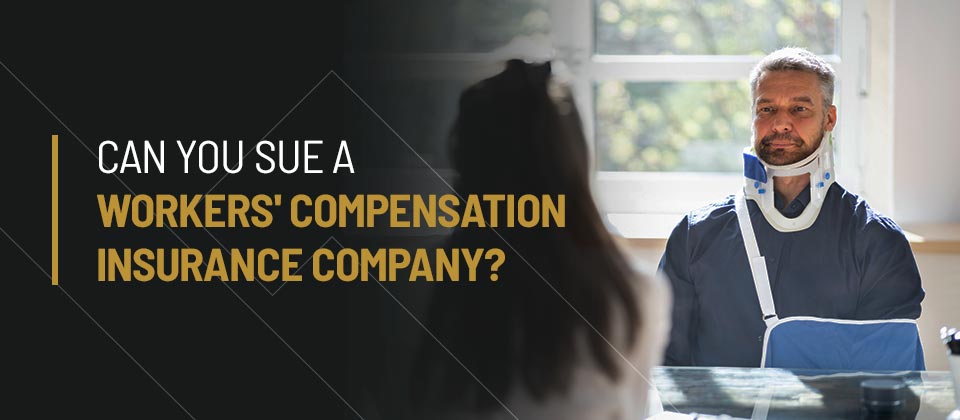Workers’ compensation insurance helps protect injured employees and the companies they work for should an injury occur on the job. The insurance should provide coverage regardless of fault. It covers acute injuries, such as those resulting from falls on the job, as well as injuries that develop over time, such as repetitive stress injuries.
Workers’ compensation should cover your medical bills and reimburse you for a portion of your wages if you have to miss work because of the injury. Because of workers’ comp, employers are protected from having to pay high medical fees or pay workers when they aren’t actively working. It also protects employers from lawsuits.
Generally speaking, you can’t sue your employer if you’re injured at work and accept workers’ compensation insurance. If you’ve been injured at work and believe you have a legal case, workers’ compensation attorneys can help you better understand your rights and decide whether a workers’ comp insurance lawsuit in PA is appropriate.
Can You Sue a Workers’ Compensation Insurance Company?
If you get hurt at work, the first thing to do is tell your employer. You’ll need to see a medical provider for evaluation and treatment. Initially, you’ll have to set up an appointment with a doctor chosen by your employer if you are presented with a list of panel physicians. After 90 days, you can see your own doctor if you wish.
Your employer will have to file a workers’ comp claim with the state’s department of labor and industry. Your employer will also need to submit paperwork to the insurance company to get the claim started.
The insurance company will decide whether to approve or deny your claim. If it denies your claim, you might be able to sue. Your right to sue depends on the reasoning behind the denial and the insurance company’s approach.
If the insurer rejects your claim for a legitimate reason, such as you filed too late or the injury isn’t connected to work, you typically don’t have the option to sue.
Reasons to Sue Your Workers’ Compensation Insurance Company?
If an insurance company denies your workers’ compensation claim, you can appeal the decision. In some cases, you might wonder if suing the workers’ comp company is the best course to take.
Insurers deny workers’ compensation claims for various reasons. In some cases, they can deny a claim because the employee didn’t provide enough information about the injury or because the employee didn’t file by the deadline — within three years after the injury. An insurer is likely to deny a claim if you didn’t seek medical treatment for your injuries. Your employer might also deny that your injury is work-related, which can cause the insurer to deny your claim.
Whether suing the insurer is the right step to take depends on many variables. A workers’ compensation attorney will review your case closely and help you decide how to proceed.
There might also be cases when the insurer has approved your claim but makes it difficult to get your compensation. One tactic is for an insurer to send the payment check late. Some will refuse to pay for certain types of medical treatment, even if the treatment is connected to a work injury. In either instance, taking the insurer to court can be your best option.
Your employer might play a part in your claim denial, even though workers’ compensation exists to protect companies. Employers have to pay premiums for workers’ comp insurance. If a company has a lot of claims, its premiums can increase. To keep claims from skyrocketing, an employer might make it difficult to get a claim approved.
Some tactics employers use to block claims include denying responsibility for the injury. If your injury is a worsening of a pre-existing condition, the employer might claim you were already injured and that it isn’t responsible for it.
An employer might also try to downplay an injury, insisting it’s not as bad as you claim it is. Another tactic is for the employer to claim you were under the influence of alcohol or drugs at the time of the injury.
If your employer uses unfair tactics that lead to a claim denial, you usually can’t sue your employer, but you do have the option of suing the workers’ compensation carrier appealing the claim. Appealing a denial involves filing a Claim Petition with the Pennsylvania Workers’ Compensation Bureau within no longer than three years from the date of your injury.
Suing an Insurance Company for an Improper Decision
Often, workers’ compensation insurance companies may want to pay as little as possible for an employee’s medical treatment and lost wages. They have many tactics to use to reduce what they pay you. In some cases, the decision of the insurance company might contradict your doctor’s opinion or recommendation.
Can you sue a worker’s compensation insurance company in PA? You might not agree with the insurer’s decision, but that doesn’t mean you always have the right to sue. You do have legal rights, though, and an attorney can help ensure your rights are protected.
You’re no longer eligible to receive compensation once you’re medically fully recovered and cleared to return to work. To obtain such a medical opinion, some insurers will require you to have an independent medical exam, usually through a provider chosen by the insurer. The insurer might also have you meet with a vocational expert to prove that work is available to you. As a result of either the medical exam or meeting, the insurer might decide that you’re physically well enough to return to work.
If an insurer wants to pursue a medical exam or use other tactics to push you back into the workplace before you’re fully healed, pursuing litigation and defending against such an action might be the right choice. A workers’ compensation attorney can help you decide how to sue for workers comp in PA. Your attorney can also help prepare you for any meetings or interviews and can act as your advocate through the litigation process.
Should you decide to sue the insurer for an improper decision or denial of your benefits, it’s helpful to have ample documentation supporting your claim. Keep records of any communication between yourself and the insurer and between yourself and your employer.
Can You Sue if You Accept Workers’ Compensation?
Workers’ compensation protects both employee and employer. It protects you by paying for medical bills and lost wages. It protects your employer by limiting your right to sue after an injury. Employees typically can’t sue their employers for pain and suffering related to a workplace injury. Since the insurance is meant to cover medical bills and wages, you also can’t sue the employer for those.
Can You Sue Your Employer?
Pennsylvania law requires most employers to have workers’ compensation insurance coverage. The coverage can come from the State Workers’ Insurance Fund, a licensed insurance carrier or self-insurance. Whatever form of coverage an employer has, it protects them from lawsuits.
Should an employer not have adequate coverage or let its policy lapse, it opens the door to being sued by injured employees. Without a policy in place, there’s no way for employees to get the compensation or reimbursement they need after an injury.
Employers who don’t have the appropriate workers’ compensation insurance coverage are also at risk of criminal prosecution.
In some circumstances, your employer might be exempt from the state’s workers’ compensation insurance requirements. Some workers’ compensation acts supersede the state’s law. Federal employees and railroad workers are usually exempt from Pennsylvania’s law.
If any exemptions apply to your employer, and you become injured on the job or as a result of your job, you might be able to sue.
Another example of when a lawsuit against an employer might be an option is if your injury was intentional. Usually, intentional acts don’t include injuries that occur due to employers’ negligence. If your employer doesn’t have the appropriate safety warnings or systems in place and you get injured, you usually can’t claim that the injury was intentional.
An intentional injury usually has to be something that occurs because someone wanted to hurt you. If you get into a physical argument with a co-worker or boss, and they push you down the steps, that’s an intentional injury.
If you want to sue your employer because it doesn’t have adequate workers’ compensation coverage or because your injury occurred after an intentional act, you’ll most likely file a personal injury lawsuit. Act quickly after the injury, as the statute of limitations for personal injury cases in Pennsylvania is two years.
Can You Sue Workers Comp in PA for Negligence?
A third party is sometimes involved when a person becomes injured on the job. Third parties are individuals or companies who aren’t directly connected to the employer but who might have had something to do with the injury. You might be driving the company car to meet with a client when another driver rear-ends you and you develop whiplash.
Since you were driving for work at the time of the accident, you can file a claim with your employer’s workers’ compensation insurance carrier. You can’t sue your employer for any pain and suffering you experience.
But, you can sue the driver who rear-ended you. They are a third party, and since they hit you from behind, they are likely at fault in the accident. If your injury causes you pain and suffering, you could bring a personal injury lawsuit against the other driver.
You might also be able to file a third-party lawsuit against the manufacturer of a piece of equipment you were using on the job at the time of your injury. If you were operating a piece of machinery and the machinery malfunctioned, causing you to hurt yourself, you can file a workers’ compensation claim with your employer and also potentially pursue a lawsuit against the manufacturer.
Usually, for your claim to be valid, the third party must have been negligent in some way. You might need a fair amount of evidence to prove that the third party was responsible for your injuries. A workers’ compensation attorney can review your case and let you know what your options are.
One exception to the third-party rule is if the third party happens to be a co-worker or boss and the injury wasn’t intentional. If your co-worker leaves a cord in the middle of the hallway and you trip on it and break an arm, you can’t sue them for pain and suffering, even though your injury was a result of negligence on their part.
Contact Frommer D’Amico Today to Learn More About Your Options
While you might not be able to sue your employer or the insurance company for workers’ compensation, you still have options if you’re injured on the job. The attorneys at Frommer D’Amico specialize in workers’ compensation. We can evaluate your claim and help you understand your options, whether it’s to appeal or pursue litigation, all while offering free case management.
Contact us today to schedule a consultation and learn more about what your rights are following a workplace injury.
Get Your Pennsylvania Workers’ Comp Case Evaluation




